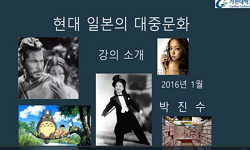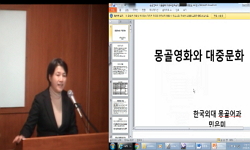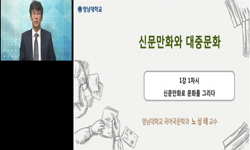1950년대 현대사회론에서 발원한 1960-70년대 대중사회론은 1971년의 논쟁을 거쳐 1970년대 후반 다시 한번 학문적 담론장에서 큰 이슈가 되었다. 이 논의는 1970년대 중반 대중사회 관련 서적의 ...
http://chineseinput.net/에서 pinyin(병음)방식으로 중국어를 변환할 수 있습니다.
변환된 중국어를 복사하여 사용하시면 됩니다.
- 中文 을 입력하시려면 zhongwen을 입력하시고 space를누르시면됩니다.
- 北京 을 입력하시려면 beijing을 입력하시고 space를 누르시면 됩니다.

1970년대 후반 한국 대중사회 담론의 지형과 행방 = The Landscape of Discourses on Mass Society in Late 1970s` Korea
한글로보기https://www.riss.kr/link?id=A100106498
- 저자
- 발행기관
- 학술지명
- 권호사항
-
발행연도
2014
-
작성언어
-
-
주제어
대중 ; 대중사회론 ; 대중문화 ; 민중 ; 민중주의 ; 문화의 민주화 ; 마르크스주의 ; 프랑크푸르트 학파 ; 비판이론 ; 산업사회 ; 현상과 인식 ; 문학과 지성 ; 창작과 비평 ; Mass ; Daejung ; mass society theory ; people ; Minjung ; democratization of culture ; Marxsim ; Frankfurt School ; Critical Theory ; industrial society ; Phenomenon and Know
-
KDC
800
-
등재정보
KCI등재
-
자료형태
학술저널
- 발행기관 URL
-
수록면
103-136(34쪽)
- DOI식별코드
- 제공처
-
0
상세조회 -
0
다운로드
부가정보
국문 초록 (Abstract)
1950년대 현대사회론에서 발원한 1960-70년대 대중사회론은 1971년의 논쟁을 거쳐 1970년대 후반 다시 한번 학문적 담론장에서 큰 이슈가 되었다. 이 논의는 1970년대 중반 대중사회 관련 서적의 번역과 이론의 소개를 통해 진행된 학문적 심화와 전문화에 크게 기대고 있었다. 1970년대 중반 미국 사회심리학과 프랑크푸르트 학파의 비판이론들이 학문적으로 심화된 이후, 1978-79년 『현상과 인식』, 『문학과 지성』, 『창작과 비평 』등이 모두 참여한 가운데 전개된 대중사회론의 활발한 재논의는 이전과 다른 담론적 지형을 형성하였다. 대중문화의 확산에 대한 경계심은 여전했지만, 대중사회에 도달했다는 자신감과 이에 걸맞게 각 분야가 대중화될 필요성에 대한 확신은 이전과 다른 새로운 관점이었다. 특히 대중사회론은 근대화와 아메리카니즘에 대한 판타지보다 사회 비판이론으로서의 역할을 하기 시작했다. 그것은 마르크스주의 혁명론을 받아들이기 어려웠던 학자들이 한국사회에 대한 비판적 입지점을 세울 수 있었던 몇 안 되는 선택지 중의 하나였다. 그러나 ‘민중’을 중심으로 하는 정치적 주체화의 기획이 새롭게 진행되면서, 대중사회론은 자신들을 폄하하고 흡수하려는 민중주의와 경합을 벌이고 수세적인 방어를 하면서 결국 산업사회론에 흡수되고 사라지게 되었다. 산업사회가 산업화 과정에서 소외된 계층들인 노동자의 문제, 빈곤과 불평등의 문제, 자본가와 노동자의 계급대립 문제 등을 더 포괄적으로 다룰 수 있는 이론적틀을 제공할 수 있는 단어였기 때문이다. 대중사회론이 마르크스주의와 혁명적 계급론이 장악한 1980년대에 독자적인 이름과 학문적 의미망을 잃고도 마르크스주의가 아닌 영역을 위한 학문적 자리를 예비할 수 있었던 것은 의도하지 않은 역할이었다.
다국어 초록 (Multilingual Abstract)
In the late 1970s, Discourses of Mass Society rose to prominence again, stemming from the theory of modern society and the debate of mass society in 1971. Since many scholars had developed and deepened the diverse mass society theory, new discourses o...
In the late 1970s, Discourses of Mass Society rose to prominence again, stemming from the theory of modern society and the debate of mass society in 1971. Since many scholars had developed and deepened the diverse mass society theory, new discourses on mass society in 1978-79 formed a new landscape that was different from the early 1970s. Many scholars in the field of humanities, social sciences and culture, participated in the discussion through journals such as Phenomenon and Knowledge, Literature and Intelligence and Creation and Criticism. They had not only a wariness on popular culture, but also a kind of confidence in the realization of mass society and a belief on the necessity of popularization of social fields. Especially, discourses on mass society started to function not as a fantasy on modernization and Americanism but as a sort of critical theory on Korean society. It was an alternative to find a standpoint of criticizing society for scholars who felt uncomfortable about Marxism and Revolution theory. They had to defend themselves against a new political dissident project and compete with the Minjung(people) theory, so they moved from discourse on mass society to theory on industrial society. The latter has a theoretical merit to deal with the problems of laborers: alienation of the oppressed people, a struggle of labor against capital, poverty and economic inequality. These discussions unintentionally played an important role to make a academic space for non-Marxist theory in 1980s.
참고문헌 (Reference)
1 "현상과 인식"
2 강신표, "한국이론사회학의 방향에 대한 작은 제안:?한완상과 김경동의 사회학 비판?(1983) 이후" 사회와 이론 (6) : 243 ~ 272, 2005
3 "창작과 비평"
4 "정신문화연구"
5 조경희, "전후 일본 ‘대중’과 ‘시민’의 교차와 길항-1960년 안보투쟁을 둘러싼 서사를 중심으로" 사이間SAI (12) : 103 ~ 133, 2012
6 강신표, "인류학적으로 본 한국 사회학의 오늘-김경동과 한완상의 사회학" 현상과인식 (24), 1983
7 정문길, "소외론 연구" 문학과지성사, 1979
8 "세대"
9 정창렬, "백성, 평민, 민중" 역사비평 (74) : 273 ~ 280, 2006
10 황병주, "박정희 시대의 국가와 ‘민중’" 당대비평 (12), 2000
1 "현상과 인식"
2 강신표, "한국이론사회학의 방향에 대한 작은 제안:?한완상과 김경동의 사회학 비판?(1983) 이후" 사회와 이론 (6) : 243 ~ 272, 2005
3 "창작과 비평"
4 "정신문화연구"
5 조경희, "전후 일본 ‘대중’과 ‘시민’의 교차와 길항-1960년 안보투쟁을 둘러싼 서사를 중심으로" 사이間SAI (12) : 103 ~ 133, 2012
6 강신표, "인류학적으로 본 한국 사회학의 오늘-김경동과 한완상의 사회학" 현상과인식 (24), 1983
7 정문길, "소외론 연구" 문학과지성사, 1979
8 "세대"
9 정창렬, "백성, 평민, 민중" 역사비평 (74) : 273 ~ 280, 2006
10 황병주, "박정희 시대의 국가와 ‘민중’" 당대비평 (12), 2000
11 "문학사상"
12 "문학과지성"
13 "매일경제" 1972
14 "동아일보" 1937
15 오르테가 이 가세트, "대중의 반역" 역사비평사, 2005
16 윌리엄 콘하우, "대중사회의 정치" 제민각, 1990
17 강현두, "대중문화론" 나남, 1987
18 김주연, "대중문학과 민중문학" 민음사, 1980
19 야스마루 요시오, "냉전체제와 자본의 문화" 소명출판, 2013
20 성민엽, "김병익 깊이 읽기" 문학과지성사, 1998
21 이병훈, "국내 산업사회학 연구의 동향과 향후 과제" 한국사회학 37 (4) : 7 ~ 214, 2003
22 송은영, "1970년대 여가문화와 대중소비의 정치" 현대문학의 연구 (50) : 39 ~ 72, 2013
23 장상철, "1970년대 '민중' 개념의 재등장" 경제와 사회 (74) : 114 ~ 138, 2007
24 송은영, "1960년대 여가 또는 레저 문화의 정치" 한국학논집 (51) : 71 ~ 98, 2013
25 송은영, "1960~70년대 한국의 대중사회화와 대중문화의 정치적 의미" 상허학보 32 : 187 ~ 226, 2011
26 송은영, "1960~1970년대 한국 대중사회논쟁의 전개 과정과 특성 -1971년 대중사회 논쟁을 중심으로-" 사이間SAI (14) : 149 ~ 177, 2013
동일학술지(권/호) 다른 논문
-
- 한국문학연구학회
- 박상준 ( Sang Joon Park )
- 2014
- KCI등재
-
형식 실험을 통한 현실의 재현과 극복 -김소진 소설을 중심으로
- 한국문학연구학회
- 김인경 ( In-kyung Kim )
- 2014
- KCI등재
-
“모던”과 “조선”, 그 번역의 (불)가능성 -최재서의 번역을 중심으로
- 한국문학연구학회
- 서승희 ( Seung-hee Seo )
- 2014
- KCI등재
-
- 한국문학연구학회
- 이혜원 ( Hye-won Lee )
- 2014
- KCI등재




 KCI
KCI KISS
KISS






